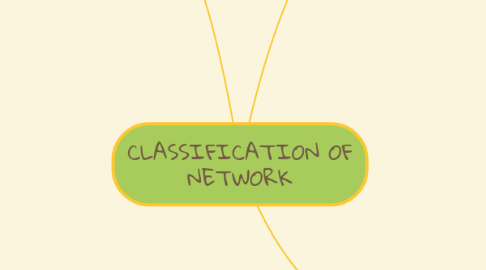
1. Metropolitan Area Network
1.1. a high speed network that connects LAN in a metropolitan area
1.2. coverage:
1.2.1. several buildings or even the entire city
1.3. ownership:
1.3.1. owned by a group of users who jointly own and operate the network
1.4. transmission media:
1.4.1. fiber optic cables
1.5. advantages:
1.5.1. efficiency and shared access
1.5.2. all computer-owning residents of the area have equal ability to go on line
1.6. disadvantages:
1.6.1. it can be costly
1.6.2. security problems
1.6.3. the connection become slow
1.7. example the application:
1.7.1. surveillance system
1.7.2. traffic light monitoring sytem
2. Local Area Network (LAN)
2.1. a network that connects computers and devices in a limited geographical area
2.2. Coverage:
2.2.1. confined to a computer lab in school, single room, building etc
2.3. ownership:
2.3.1. owned and operated by individual organizations
2.4. transmission media:
2.4.1. telephone lines @ radio waves
2.5. advantages:
2.5.1. easy to share devices
2.5.2. easy to share data
2.5.3. cost setup- low
2.6. disadvantages:
2.6.1. a virus can spread more easily
2.6.2. if all computers running at once, can reduce speed of each
2.7. example of application:
2.7.1. sharing a printer in a building
2.7.2. surveillance system in a building
3. Wide Area Network:
3.1. a network that covers a large geographic area
3.2. ownership:
3.2.1. has NO ownership
3.3. advantages:
3.3.1. increase efficienly
3.3.2. ease of communication
3.4. disadvantages:
3.4.1. security problems
3.4.2. training costs
3.4.3. maintenance problems
3.5. example:
3.5.1. Worldwide VPN system

